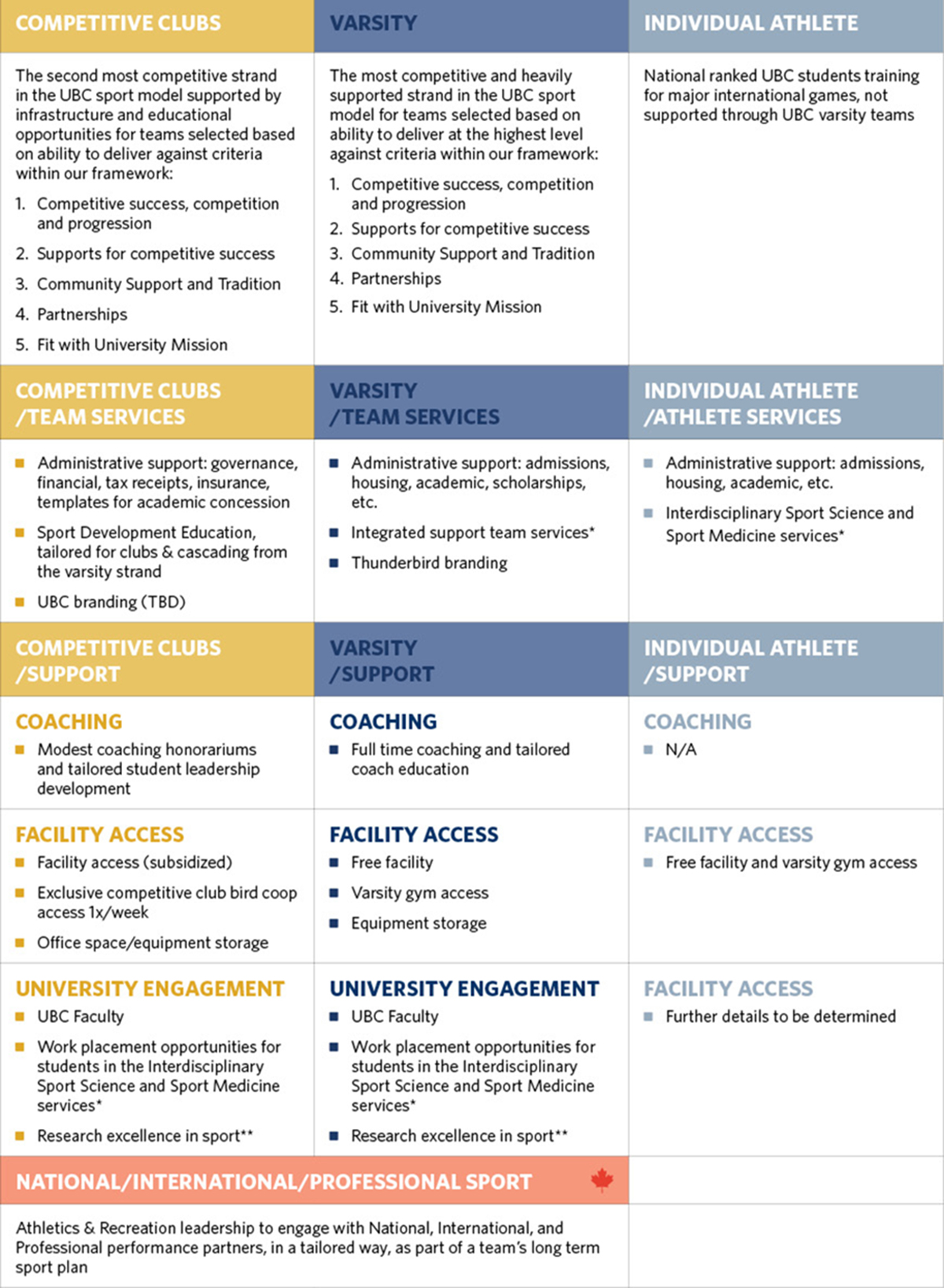Competitive Sport Model: A work in progress
October 2, 2013
A UBC Athletics & Recreation project team has been formed to adapt and adopt the conceptual competitive sport model presented in the Spring, 2013. The group has taken some time to reflect on the sporting pathway as a whole, and envisions an integrated experience for our students and the UBC community.
Here is some of the feedback we received on the original conceptual model:
- The notion of a UBC sports model for implementation and development over the years was welcomed
- The proposed connection to the University and partners for research excellence and performance development was very well received
- People did not like that the diagram seemed to place more value on some strands than others
- There was confusion over the international/national/professional “red” strand
- There was worry over the loss of “varsity” status as the brand for the most competitive of the Thunderbird strands
- There was strong support for the new competitive club strand
We do not have all of the answers at this point, but wanted to share an initial image of how the model is evolving, now illustrated from left to right to demonstrate the full breadth of opportunities for all of our students and community. The two most competitive strands—varsity and the new competitive club strand – are the focus of the last phase of the sport review. Teams placed in these two strands will benefit from Athletics & Recreation leadership in building national, international and professional partnerships to underpin varsity and competitive club success.
The draft types and levels of services and support we propose for each of the competitive strands in the evolving sports model are highlighted below. We welcome your feedback and your questions on this development in our sports model via feedback@gothunderbirds.ca.

*Interdisciplinary Sport Science and Sport Medicine services (Physiology, Nutrition, Strength and Conditioning, Sport Psychology, Physiotherapy, Athletic Therapy and Medicine).
**Research Excellence in Sport: Engagement with the sport research community to facilitate knowledge transfer from UBC faculty, Graduate students, and external partners to foster the growth and development of athletes and coaches. In partnerships with UBC Faculties, provincial and national collaborators, create an environment for applied research and sport innovation to the direct benefit of UBC and Canadian athletes.
In reviewing the original, conceptual competitive sport model for background purposes, please be advised that the language reflects the model as and when it was developed. The sports model with the green background and pyramid structure culminating in an international/national/pro “red” strand has been modified and continues to develop based on feedback and project team leadership.
